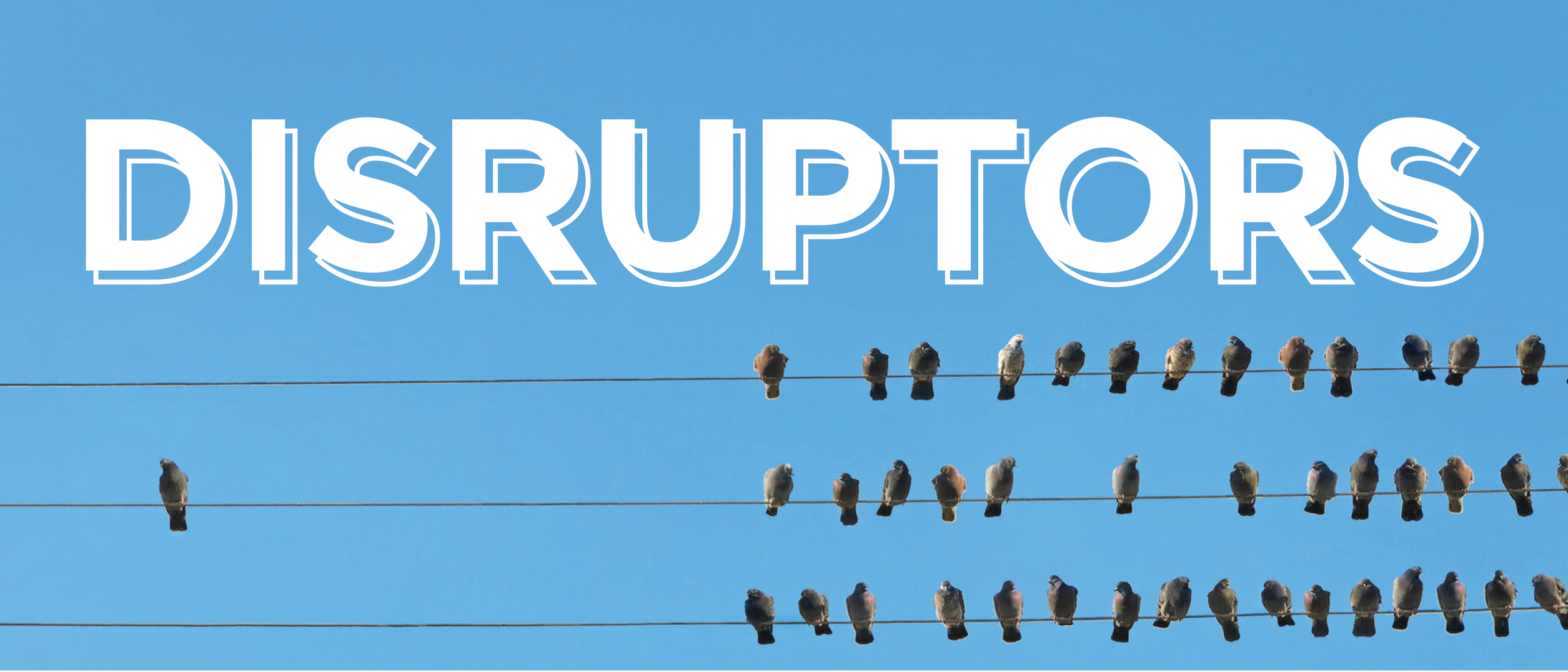Disruptors make history.
The word disrupt is a verb and has four definitions; one specifically for business.
Disrupt [dis-ruhpt], to radically change (an industry, business strategy, etc.), as by introducing a new product or service that creates a new market.
How do disruptors make history?
Five years ago on a taxi ride to the airport, the driver wouldn’t stop slamming Uber. He harangued that Uber was evil, Uber drivers were unlicensed criminals, and Uber passengers foolishly risked their lives to save a few bucks.
Ten years ago while buying a book at Barnes & Noble, I asked the store manager if he thought Amazon was a threat to bookstore owners. He said Jeff Bezos was a fraud, scamming investors into a certain-to-lose venture.
Bookstore owners and taxi drivers deserved to be disrupted. They criticized instead of creating. Disrupters make history by challenging the status quo.
Disruptors create
Bookstore owners had the books, the relationships with publishers and the customer lists. They could have built a website that disrupted Amazon before Amazon disrupted them. But they criticized instead of creating.
Taxi drivers had the drivers, the routes, the airport relationships, and the customer lists. They could have developed an app, sped up service, and disrupted Uber before Uber disrupted them. But they criticized instead of creating.
Disruptors take risks
Industry disruptors fascinate me. They risk money (often every nickel they have) and reputation (losing face in their industry). They also become a target for traditionalists, the people who lose big when big change occurs.
Disruptors are my entrepreneurial heroes. They risk money, reputation, and criticism to make a positive difference.
My favorite disruptor
My respect for disruptors was instilled by my dad. His nickname was Chubby. Dad inspired my bestselling book on fathering, How Fathers Change Lives (5-star rated on Amazon). You can download a free copy below.
Chubby built a powerhouse Cincinnati real estate firm by demanding that his Realtors work harder, become smarter and service clients better than the competition. This was disruptive stuff back then.
Chubby was criticized as being a hard ass because most real estate firms (then and today) let Realtors do their own thing. Not Chubby.
At his company, you better be at work and on your game six days a week. Slackers were fired with no apology. He may have been a hard ass, but Chubby’s Realtors were the smartest, most productive in town, and everyone darn well knew it.
Disruptors go against the grain
Back in the ’80s I founded a real estate firm that offered home sellers a way to save part of the 6% commission if they hosted their own open houses (so my agents didn’t have to).
Our sellers would put out open signs (we gave them), hand out brochures (we gave them), and tell interested buyers to call one of my agents if they had questions or wanted to negotiate a purchase.
Since our sellers procured their own buyers, we didn’t have to pay 3% to an outside agent. So we could afford to charge our sellers less and save them money. My firm was wildly successful, growing to 121 offices and 4000 agents in 22 states.
That was my first lesson in disruption. The heat I got from “traditional” Realtors was insane. They said I was tampering with the “sacrosanct” 6% commission. It was ridiculous.
My agents were top earners in the industry and my firm exploded in growth and prospered hugely. Yet instead of trying to emulate and improve on our business model, traditional agents shot at us. They criticized instead of creating.
It’s interesting how the perception of disruptors shifts as they forge their path to success.
In the beginning they are ignored, considered eccentric and weird. When they start taking business away from traditionalists, they are shot at and criticized. Then when they build a powerhouse business model that changes an industry, they are revered as visionaries. This has been true of Jeff Bezos, Elon Musk, Steve Jobs and many more.
History has taught us that there isn’t an industry that won’t ultimately be disrupted. You cannot improve the world by trying to be like it. The only question is whether you want to stay in your buggy or try out that new fangled, smoke-spitting, irritatingly loud, possibly dangerous, Model T Ford.
Download my 5-Star Rated Amazon book, How Fathers Change Lives for free
Get my popular blog delivered to your inbox weekly and never miss a post







